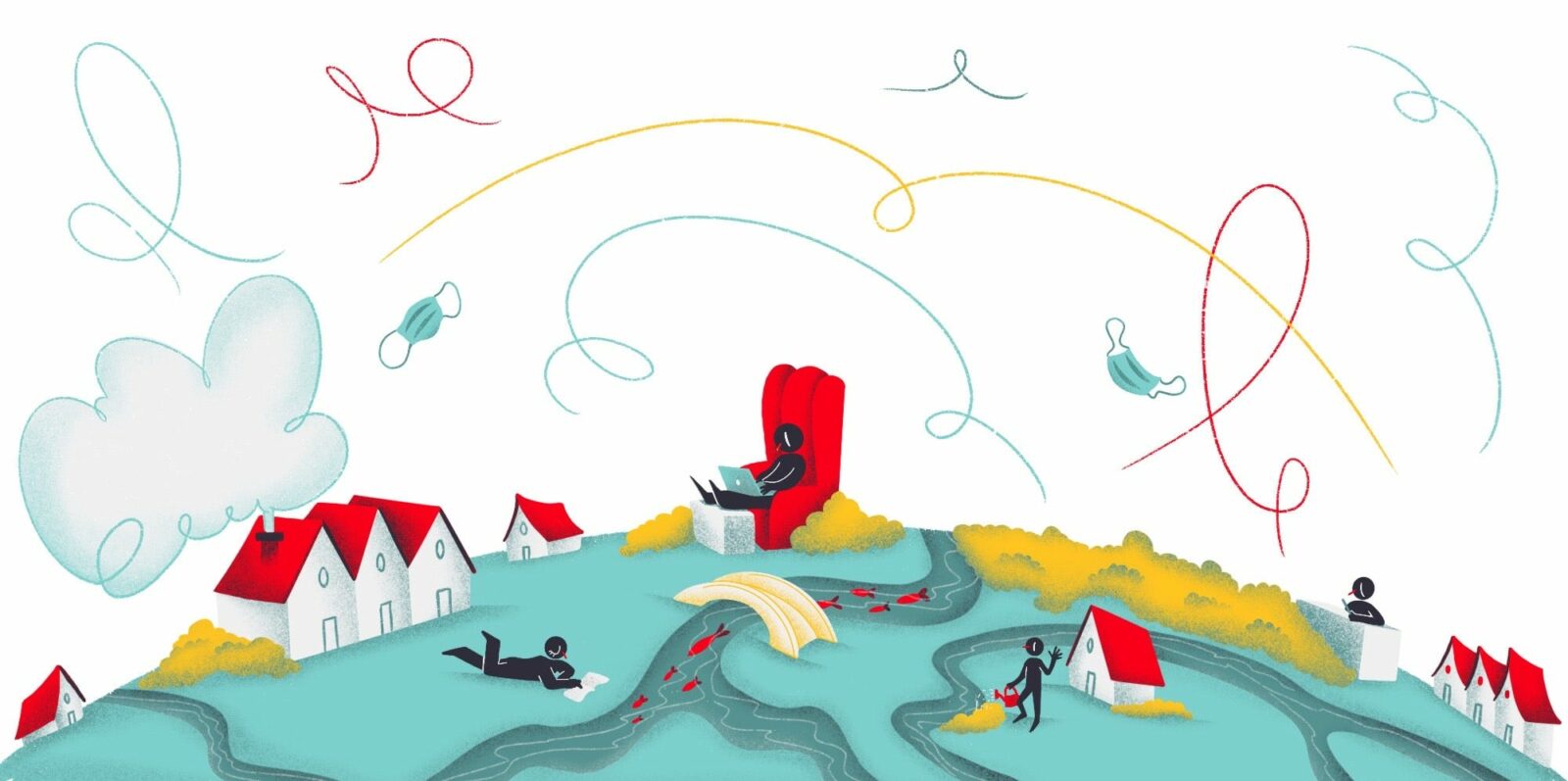9 Predictions for a Post-Covid-19 World
Published in ATÖLYE Insights · 5 min read · March 24, 2020
How long-term thinking may provide a calming perspective of the future
Author: Engin Ayaz, Co-founder, ATÖLYE Editor: Özgür Arslan
We are living in odd times... The turbulent news are whitewashing us every minute, preventing us from forecasting for the long term. Yet, we believe that this is precisely the right time to think about a few years ahead, rather than tomorrow—to wear the long-term hat and ruminate on the emergings that will encrust.
Here are some predictions for what may change for good, as the riptides of COVID-19 calm down. If anything, we hope these engender new conversations, rather than try to firm up a path in an inherently chaotic phase of the world.
To make some sense of it, we wanted to start with large undercurrents and move towards daily behavioral nuances. Here goes...
1) Geopolitics: The East has responded far more deftly to the epidemic than the West. This will accelerate the gravitational shift of power from West to East that was already happening. Once the storm calms, China determining the pace of manufacturing will bring tremendous leverage to it in the coming years.
The likes of Singaporean and South Korean governance in preemptively managing urban crises will attract those in the West who care about good governance and public health safety.
European Union will start to feel even less relevant due to its ineptitude to provide a coordinated response. Provincialism was already kindled by Brexit, but this perception will further fragment the region's power in the global discourse.
2) Climate Change: C19 is the first properly global, trans-sectoral crisis that we face and it will change humanity's relationship with climate change by forcing nations to cooperate further in the medium term. Bushfires in Australia on a continental scale and Greta Thunberg's advocacy were harbingers of "slow hope," but C19 will nudge us to cooperate deeper and faster. Moreover, in the short term, it will give a short respite to nature, like the fish-filled canals of Venice, reminding us of the delicate systems that can flourish when we are not around.
3) Healthcare: The discourse will lean to the left towards universal care, in a world replete with right-ist ideology. The clash of both sides will be interesting to watch—if anything, the current capitalist industrial complex may unwind via the failed state of healthcare. People will increasingly demand that the health system offers the fundamentals to all. Universal basic income may still be afar, but universal healthcare is certainly not.
4) Manufacturing: The fragile dependency on the East for cheap labor will accelerate Western local manufacturing schemes, alongside robotics innovation. "Handmade luxury" market will evolve, as it was the epicenter of dissemination in France and Italy after the virus being carried as a result of the intense family visits during the Chinese New Year. "Locally crafted" will be the new niche.
5) Home: Having a single home and anchoring will start to feel more relevant. The circles of trust and communities will matter more. Living a multi-nodal life will start to feel more fragile—even though it may have felt more resilient before. A sense of belonging will trump excitement.
Micro-communities that also hinge on physical proximity will form. Italian courtyards filled with interacting neighbors across the alleys bring us back to medieval relationships that we have long forgotten.
6) Social bonds: People will realize that the current nudge towards transactional relationships via digital platforms fails the litmus test of a crisis. In return, people will invest in deeper and more meaningful ones. Digital tools that enhance and augment authentic communication in intimate circles will emerge and thrive. Those that focus on depleting the relentless dopamine-cycle via exhibitionism will take a temporary hit.
7) Freelancers and the gig economy: Sense of security will kick in as emerging value in a world of uncertainty, increasing full-time jobs percentage. Talent will also demand a new type of hybrid contract that provides a safety net while demanding more autonomy in the workflow.
8) Work: When all the madness subsides, office spaces will transform even faster from a fixed to a fluid setup. They will further resemble other fluid architectural typologies, such as hotel lobbies, cafes, bars, and libraries. Meanwhile, digital collaboration spaces that deploy more affordances from the physical world will spread. Game designers will crack the code of awkward Zoom/Hangouts interactions to build something better. Small, experiential sonic touches in virtual workspaces will go a long way; such as breakout rooms that one can "walk into" (e.g. the newcomer's sound increases gradually) or engaging interactive backgrounds that amplify the discussion content.
9) Public spaces: The rural personal radius of handwaving (versus handshake) and "an arms distance" will become the new urban norm. Form factors will adjust, especially in the West, to a demand for larger personal areas in public spaces. Material treatments will shift based on the "infection index" of certain materials. UV lights may be part of the urban rubric for perpetual sterilization in certain settings.
We, at ATOLYE, are dedicated to shaping a better future and would love to shape our thinking along with your challenges. On this note, we would like to offer a 90-minute generative conversation where we can discuss the strategic paths your organization can explore in response to what has been emerging in the world.
If you are interested, please answer these questions and we'll get back to you soon. Needless to say, please share your predictions and feedback along as well.
*Ideas originally published on March 15 on Twitter.
